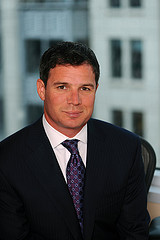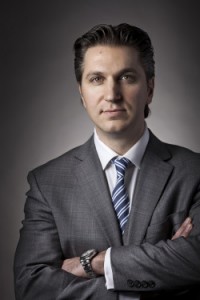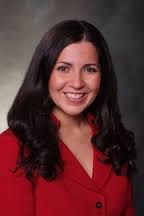American Gaming Association President Geoff Freeman is throwing down against Pennsylvania Gov. Tom Wolf (D) and the latter’s desire to tax casino free play. If  Wolf’s proposal had been in effect last year, the state would have netted slightly less than $50 million in tax monies on $622 million in free play. That would make a small dent in the state’s $2 billion budget deficit. “The idea of taxing free play makes little or no sense. It is counterproductive. It will cost the Commonwealth of Pennsylvania in terms of tax revenue and will steal dollars away from reinvesting in properties,” Freeman told the Pittsburgh Post-Gazette.
Wolf’s proposal had been in effect last year, the state would have netted slightly less than $50 million in tax monies on $622 million in free play. That would make a small dent in the state’s $2 billion budget deficit. “The idea of taxing free play makes little or no sense. It is counterproductive. It will cost the Commonwealth of Pennsylvania in terms of tax revenue and will steal dollars away from reinvesting in properties,” Freeman told the Pittsburgh Post-Gazette.
Spectrum Gaming Group Managing Director Michael Pollock had a blunter explanation: “Casinos don’t make money off free play. They make money off the spending that is expected to be generated by free play.” Less free play means fewer players, which means less revenue, which means less money for free play, which means … you get the idea. It’s a vicious cycle. And free play has been on the rise in the Keystone State, accounting for 27% of terminal revenue in the last fiscal year, up from 7% in 2007-08. The aptly named Gov. Wolf is taking an Ebenezer Scrooge approach to deficit-closing, threatening to cut spending on education and human services. Why are the most vulnerable members of society the first ones pushed under the bus in these situations? And why is gaming always the first industry to get targeted for a tax hike?
* Because chips in social-casino games can’t be exchanged for cash, and because both the house and the player have to be at risk of losing for something to be gambling under Illinois law, DoubleDown Casino dodged a bullet in court this week. Illinois resident Margo Cooper blew over $1,000 playing on DoubleDown and wanted the courts to make her whole again. (A call to a problem-gambling hotline would seem to be the real answer to her crisis.) Although a judge ultimately sided with DoubleDown, his decision indicated that the social casino skated right up to the precipice of being Internet gambling in the Land of Lincoln.
* Amaya Gaming CEO David Baazov will be embarking upon a leave of indeterminate  duration as he faces a 23-count indictment in Quebec of insider trading. According to CasinoAffiliatePrograms.com, Baazov is accused of “providing privileged information to his brother and other cronies before it was available to the general public. In one instance, those cronies allegegedly [sic] all walked away with more than $100,000 because of Baazov’s information.” Initially, Baazov was going to take an unpaid sabbatical but has evidently changed his mind and will continue to draw a salary. His temporary departure was good news for Amaya shareholders, who saw their stock price rebound on the news.
duration as he faces a 23-count indictment in Quebec of insider trading. According to CasinoAffiliatePrograms.com, Baazov is accused of “providing privileged information to his brother and other cronies before it was available to the general public. In one instance, those cronies allegegedly [sic] all walked away with more than $100,000 because of Baazov’s information.” Initially, Baazov was going to take an unpaid sabbatical but has evidently changed his mind and will continue to draw a salary. His temporary departure was good news for Amaya shareholders, who saw their stock price rebound on the news.
* In what has to be a first for the DFS industry, Colorado lawmakers are proposing an Office of Fantasy Sports, providing dedicated oversight to the big-money pastime. The bipartisan bill would require licensing and background checks for DFS operators but would lower the age of eligibility to play to 18. The idea behind the bill is to draw a clear, bright line between casino gambling and DFS, which is why the regulation would be handled by a newly created agency, not the existing casino regulators.
The bill’s particulars extend to self-exclusion for DFS junkies, thousand-dollar fines for sites that accept wagers from banned players, plus a ban on wagering by DFS insiders. Felons would also be excluded from being part of the industry. “My bill is an effort to codify important industrywide standards to protect consumers and ensure the integrity of all fantasy sports,” said state Rep. Crisanta Duran (D, below). However, DFS player Robert Janoulis groaned at the idea. “Here we go: The government creating a solution for a problem that doesn’t exist,” he wailed to the Denver Post. LegalSportsReport.com  has mapped out the geography of DFS in the United States, dividing the country into green (yea) or red (nay) states and the industry would seem to have plenty of friendly territory. Oklahoma is particularly amicable, proposing a $2,500 registration fee, while Florida lawmakers are considering a $500,000 levy, with yearly $100,000 renewals. (The DFS operators are big boys; they can afford it.)
has mapped out the geography of DFS in the United States, dividing the country into green (yea) or red (nay) states and the industry would seem to have plenty of friendly territory. Oklahoma is particularly amicable, proposing a $2,500 registration fee, while Florida lawmakers are considering a $500,000 levy, with yearly $100,000 renewals. (The DFS operators are big boys; they can afford it.)
The ubiquity of DFS has created a growth industry in legislation, with 30 states (up from two in 2014) mulling some form of DFS legalization. In some states, DFS operators are testifying in favor of bills that would legitimize them at the same time that prosecutors are trying to shut their sites down. In Arizona, explicitly legalizing DFS could trigger a “poison pill” provision that would end tribal revenue-sharing with the state, on the grounds that Native Americans’ exclusivity to gambling had been breached. DFS is such a new phenomenon that lawmakers may not be getting their arms firmly around the issue. Legal Sports Report Editor Chris Grove certainly thinks so, saying that there’s nothing to prevent wagering on something as innocuous as a spelling bee. Says Grove, “The broader and vaguer the definition, the more likely it becomes that operators will push the limits of that definition.”

